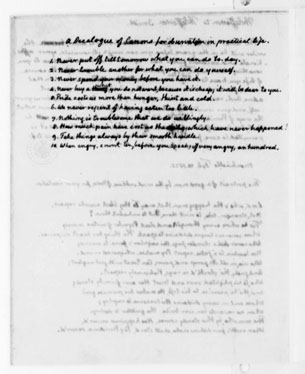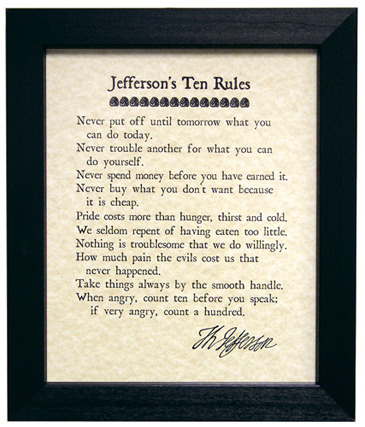"Never Spend Your Money Before You Have It"
Around 1811, Jefferson wrote a letter to his granddaughter Cornelia Jefferson Randolph, which contained a list of twelve “Canons of Conduct in Life” – rules to live by, in essence. In 1825 he sent the same list, minus two rules, to a baby boy named Thomas Jefferson Smith in response to a request from the child’s father.
In the Museum Shop we sell framed and/or frameable copies of both versions of Jefferson’s canons. In both versions, the 3rd rule is the same: “Never Spend Your Money Before You Have It.” Most of the people who visit our shop are aware, especially if they’ve already had their tour of Monticello, that Jefferson died with a huge amount of debt. Many of our guests read this 3rd rule and, thinking they detect a contradiction, point it out to us or to others in their party.
The reasons for Jefferson’s debt are numerous, though, and I believe fairness demands a deeper look at the issue. It’s true that he entertained lavishly and liked to buy quantities of wine; however, it is also true that many of the causes of his debt were far beyond his control. A lot of it can be attributed to inherited debt from his father-in-law, the financial panic of 1819, and the failure of Jefferson’s own debtors to pay what they owed him.
On a more personal note, when reading that 3rd canon, I see Jefferson as a concerned grandfather and old statesman trying to pass on to the children of the next generation the lessons that came to him the hard way. Instead of seeing his advice as a contradiction to the way he lived, I see it as a warning, or plea, not to let what happened to him happen to them. I think he was eminently qualified to give that advice.
(Read this for more on Jefferson’s debt and his efforts to alleviate it.)




